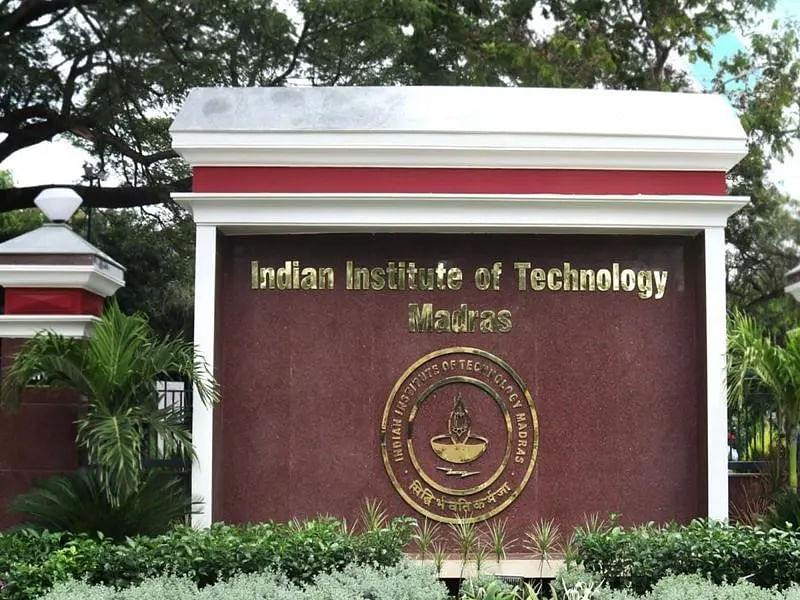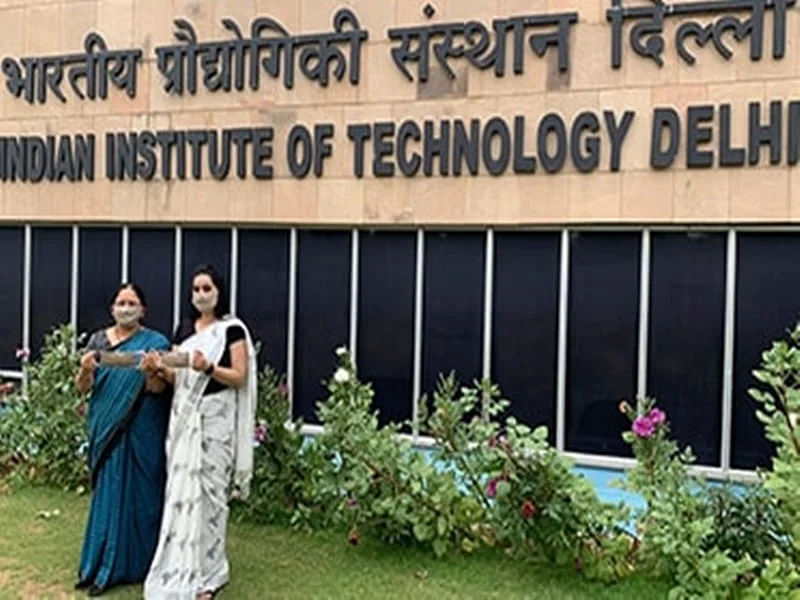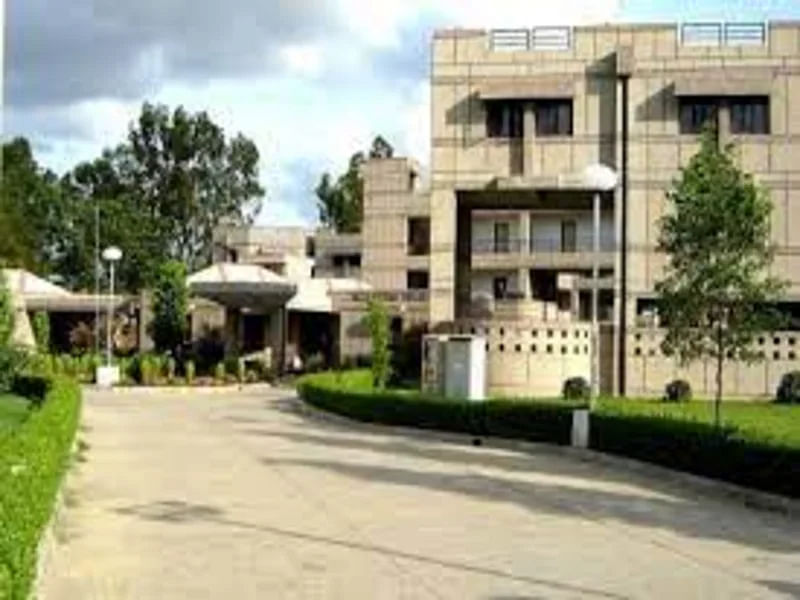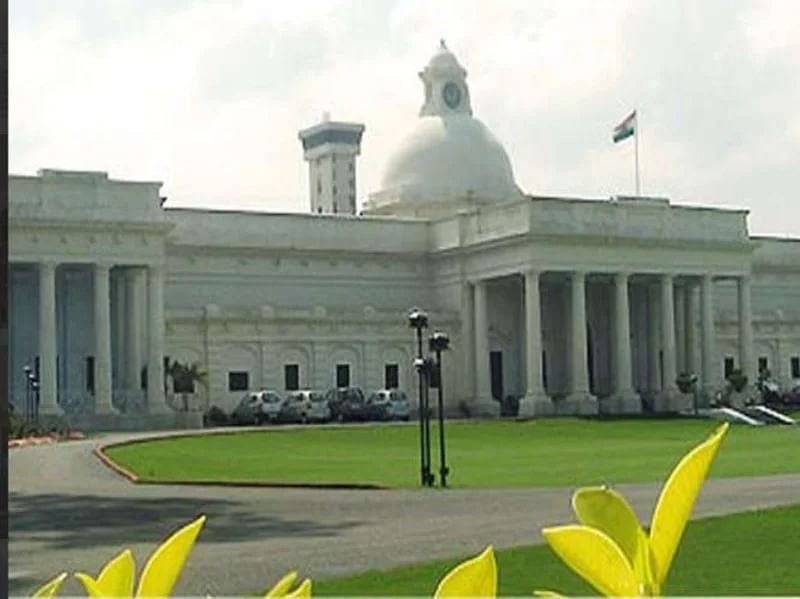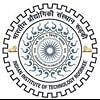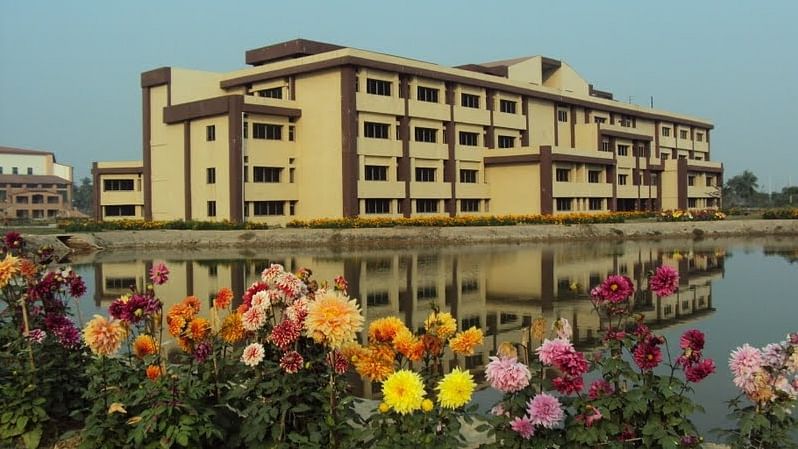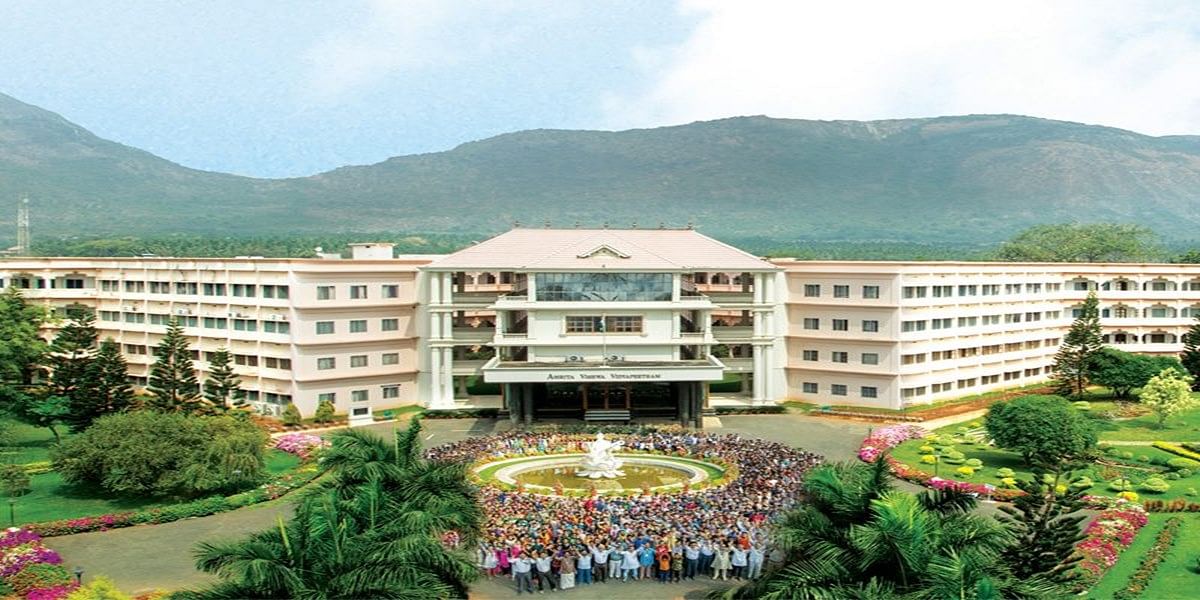BTech CSE Subjects and Syllabus

The BTech CSE syllabus focuses on a comprehensive understanding of the development and designing of computer software, computer technologies, algorithms, programming languages, program design, etc. Btech CSE subjects are divided into 8 semesters consisting of core and elective subjects, practicals/laboratory work, industrial training, projects, and seminars.
The core BTech CSE subjects include Applied Physics, Engineering Chemistry, Data Structure & Algorithms, Advanced Computer architecture, Database Management Systems, Computer Networks, etc. Students can also choose elective subjects such as Parallel Programming, Modeling & Simulation, Robotic Control, Soft Computing, Mobile Computing, Network Security, etc.
The BTech CSE course helps students develop technical skills in the field of data structures, algorithms, project management, cloud computing, etc., and build a career as a software engineer, web developer, data engineer, full-stack developer, etc.
Table of Contents
- Semester Wise BTech CSE Syllabus
- BTech CSE First Year Syllabus
- BTech CSE Second Year Syllabus
- BTech CSE Third Year Syllabus
- BTech CSE Fourth Year Syllabus
- BTech CSE Subjects
Semester-Wise BTech CSE Syllabus
The B.Tech Computer Science syllabus is divided into 8 semesters in 4 years. The Computer Science Engineering subjects for 1st year to second year are focuses on engineering fundamentals, whereas, the third to fourth-year syllabus delves into advanced topics in the computer science field. Listed below is the semester-wise BTech CSE syllabus:
BTech CSE Syllabus First Year
BTech CSE 1st year syllabus covers subjects like Applied Physics, Calculus and Matrices, Basic Electrical and Electronics Engineering, Engineering Chemistry, etc. The first and B Tech CSE 2nd semester syllabus contains mainly the foundational subjects of engineering. Below is the B.Tech CSE syllabus for 1st year:
|
Semester 1 |
Semester 2 |
|
Applied Physics-I |
Applied Physics-II |
|
Communicative English-I |
Communicative English-II |
|
Calculus and Matrices |
Basic Electrical and Electronics Engineering |
|
Engineering Chemistry-I |
Engineering Drawing |
|
Environmental Science |
Engineering Chemistry-II |
|
Basic Computer Science Fundamentals |
Computer Organization and Architecture |
|
Practical/Workshop |
Practical/Workshop |
B.Tech CSE First Year Practicals
Following are the practical subjects available under the 1st and B.Tech CSE 2nd sem syllabus:
- Applied Physics-I & II
- Computer Science Fundamentals
- Engineering Chemistry-I & II
B.Tech CSE Second Year Syllabus
BTech CSE 2nd year syllabus delves into sub-topics of fundamental topics like data structure, circuit theory, computer organization, advanced computer architecture, etc. Below listed is the B.Tech CSE 2nd year syllabus:
|
SEMESTER 3 |
SEMESTER 4 |
|
Mathematics-I |
Mathematics-II |
|
Data Structure & Algorithms |
Formal Language & Automata Theory |
|
Circuit Theory & Networks |
Operation Research & Optimization Techniques |
|
Computer Organisation |
Principles of Communication English |
|
Digital Electronics & Logic Design |
Advanced Computer Architecture |
|
Principles of Programming Language |
Technical Report Writing & / Language Practice Lab |
B.Tech CSE Second Year Practicals
Following are the practical subjects available under the B.Tech Computer Science syllabus for 2nd year:
- Data Structures Laboratory Work
- Digital Electronics and Logic Design Laboratory Work
- Programming Practice Laboratory Work
- Circuits & Networks Laboratory Work
- Operation Research Laboratory Work
- Computer Architecture & Organization Laboratory Work
- Communication English Laboratory Work
B.Tech CSE Syllabus Third Year
BTech CSE syllabus in 3rd year focuses on advanced topics like operating systems, computer networks, database management systems, software engineering, control systems, etc. Below listed is the BTech CSE third year syllabus:
|
SEMESTER 5 |
SEMESTER 6 |
|
Operating System |
Computer Network |
|
Database Management System |
Software Engineering |
|
Design & Analysis of Algorithm |
Computer Graphics & Multimedia |
|
Microprocessor & Microcontrollers |
System Software and Administration |
|
Control System |
Object Technology & UML |
|
- |
Group Discussion & Seminar |
B.Tech CSE Third Year Practicals
Following are the practical subjects available under the B.Tech CSE 3rd year syllabus:
- Operating System Laboratory Work
- Database Management System Laboratory Work
- Microprocessor & Microcontrollers Laboratory Work
- Control System Laboratory Work
- Computer Network Laboratory Work
- Computer Graphics & Multimedia Laboratory Work
- System Software & Administration Laboratory Work
- Object Technology Laboratory Work
B.Tech CSE Fourth Year Syllabus
B.Tech CSE 4th year syllabus focuses on imparting knowledge about management and ethics and developing practical skills through seminars and preparing project work. Below listed is the BTech CSE syllabus for 4h year:
|
SEMESTER 7 |
SEMESTER 8 |
|
Language Processor |
Values & Ethics in Profession |
|
Artificial Intelligence |
Industrial Management |
|
Visual Programming and Web technology |
Elective II |
|
Financial Management and Accounts |
Elective III |
|
Elective I |
Comprehensive Viva-Voice |
|
Practical Training Evaluation |
Personality Development |
|
Seminar on Assigned /Selected Topic |
Assigned Project Work |
|
Assigned Project Work |
B.Tech CSE Fourth Year Practicals
Following are the practical subjects available under the B.Tech CSE 4th year syllabus:
- Artificial Intelligence Laboratory Work
- Visual Programming and Web Technology Laboratory Work
BTech CSE Subjects
B.Tech CSE subjects can be divided into core and elective subjects. Students can choose elective BTech Computer Science subjects based on their personal interests, career scopes, or future education goals.
Apart from core subjects, there are some elective subjects for each semester. Students can choose their electives from the options provided to them by their institution. Explore the detailed BTech CSE Year-wise subjects and their topics below.
BTech CSE First Year Subjects
The first year BTech CSE subjects cover foundational concepts like Thermodynamics, Limits and Continuity, Programming Fundamentals, etc. Listed below are the first sem and B Tech CSE 2nd sem subjects.
|
Subjects |
Topics Covered |
Subject Type |
|
Applied Physics |
Mechanics, Thermodynamics, Optics, Electromagnetism, Modern Physics, Acoustics, Quantum Mechanics, etc. |
Core |
|
Communicative English |
Grammar and Vocabulary, Writing Skills, Oral Communication, Reading Comprehension, Technical Communication, etc. |
Core |
|
Calculus and Matrices |
Limits and Continuity, Differentiation, Integration, Matrices, Eigenvalues and Eigenvectors, Multivariable Calculus, etc. |
Core |
|
Engineering Chemistry |
Chemical Thermodynamics, Chemical Kinetics, Organic and Inorganic Chemistry, Electrochemistry, etc. |
Core |
|
Environmental Science |
Environmental Pollution, Biodiversity, Climate Change, Waste Management, Environmental Impact Assessment, etc. |
Core |
|
Basic Computer Science Fundamentals |
Programming Fundamentals, Data Structures, Algorithms, Complexity Analysis, Software Development Principles, etc. |
Core |
|
Basic Electrical and Electronics Engineering |
Electric Circuits, Digital Electronics, Analog Electronics, Electrical Machines, Power Systems, etc. |
Core |
|
Engineering Drawing |
Geometric Construction, Orthographic Projections, Isometric Drawings, CAD (Computer-Aided Design), etc. |
Core |
|
Computer Organization and Architecture |
Computer Architecture, Memory Hierarchy, CPU Organization, Instruction Set Architecture, etc. |
Core |
BTech CSE Second Year Subjects
The second year BTech CSE subjects explore topics like probability, linear data structures, digital computer components, etc. The BTech CSE second year subjects and topics covered are detailed in the table below.
|
Subjects |
Topics Covered |
Subject Type |
|
Mathematics-I |
Probability, Statistics, Testing of Hypothesis, etc. |
Core |
|
Data Structure & Algorithms |
Overview of C language, Time and Space Analysis of Algorithms, Linear Data Structures, Link Representation, Recursion, Non-linear Data Structure, Hashing, Sorting and Searching Algorithms, File Structures, etc. |
Core |
|
Circuit Theory & Networks |
Different types of systems & networks, Laplace transform, Transient analysis, Network theorems, Loop variable analysis, etc. |
Core |
|
Computer Organisation |
Digital computer components, Hardware & Software and their dual nature, Role of Operating Systems, ALU, Memory Unit, General Organization, etc. |
Core |
|
Digital Electronics & Logic Design |
Data and number systems, Binary representation, Codes and their conversions, Sequential Circuits, Memory Devices, etc. |
Core |
|
Principles of Programming Language |
Concepts of structural program development, Concept of data types, Recursions, Functions and Procedures, Data-type handling, etc. |
Core |
|
Mathematics-II |
Algebraic Structure, Lattice and Recurrence Relation, Graph and Algorithm, etc. |
Core |
|
Formal Language & Automata Theory |
Finite State Machines, Finite State Models, Structure of Sequential Machines, Finite Automation, Closure Properties of Regular Sets, etc. |
Core |
|
Operation Research & Optimization Techniques |
Linear Programming Problems, Solving Linear Programming Problems, Network Analysis, Inventory Control, Game Theory, Queuing Theory, etc. |
Core |
|
Principles of Communication English |
Amplitude and Frequency Modulation, A/D, D/A Converters, Shannon’s sampling Theorem, Digital Modulation, Data Transmission Synchronization, etc. |
Core |
|
Advanced Computer Architecture |
Review of Pipelining, Vector processors, SISD, MISD, MIMD, Single instruction multiple data stream (SIMD) architectures, etc. |
Core |
BTech CSE Third Year Subjects
The third-year B.Tech CSE subjects offer topics like Storage Management, Entity-Relationship Model, Data communication and Networking, etc. Listed below are the B.Tech CSE subjects for the third year along with their topics covered.
|
Subjects |
Topics Covered |
Subject Type |
|
Operating System |
System Structure, Process Management, Storage Management, Protection & Security, etc. |
Core |
|
Database Management System |
Entity-relationship model, Relational Model, SQL and Integrity Constraints, Relational Database Design, Internals of RDBMS, etc. |
Core |
|
Design & Analysis of Algorithm |
Models of computation, Asymptotic Notation, Algorithm Design techniques, Algorithm Design techniques, Dynamic Programming, etc. |
Core |
|
Microprocessor & Microcontrollers |
Instruction cycle, Machine cycle, Timing diagram, Hardware Interfacing, Interrupts and DMA, etc. |
Core |
|
Control System |
Concept of feedback and Automatic Control, Control system components, Stability of Control Systems, etc. |
Core |
|
Computer Network |
Data communication and Networking, Types of errors, Internetworking & devices, Process-to-process delivery, Cryptography, etc. |
Core |
|
Software Engineering |
System Analysis & Design, Business System Concept, System Development Life Cycle, Waterfall Model, Spiral Model, etc. |
Core |
|
Computer Graphics & Multimedia |
Computer graphics & graphics systems, Points & lines, Line drawing algorithms, 2D transformation & viewing, 3D transformations, etc. |
Core |
|
System Software and Administration |
General design procedures, Design of two pass assemblers, Cross Assemblers, Macro Processors, Managing User Accounts, etc. |
Core |
|
Object Technology & UML |
Object, class, message passing, encapsulation, polymorphism, aggregation, threading, applet programming, etc. |
Core |
B.Tech CSE Fourth Year Subjects
The fourth-year B.Tech CSE subjects deal with concepts like Compilers, Dynamic Web Pages, Financial Management, Organizational Behavior, etc. Listed below are the B.Tech CSE subjects and the topics covered under them.
|
Subjects |
Topics Covered |
Subject Type |
|
Language Processor |
Compilers, Lexical Analysis, Syntax Analysis, Syntax directed translation, Type checking, etc. |
Core |
|
Artificial Intelligence |
Intelligent Agents, Problem Solving, Search techniques, Heuristic search strategies, Adversarial search, etc. |
Core |
|
Visual Programming and Web technology |
Windows concepts and terminology, Dynamic Web Pages, Active Web Pages, JavaScript, Java Servlet, etc. |
Core |
|
Financial Management and Accounts |
Financial Management, Capital Budgeting, Management of Working Capital, Budgeting Control Technique, Cost - Volume - Profit Analysis, etc. |
Core |
|
Distributed Database |
Distributed DBMS, Storage mechanisms, Partitioned networks, Distributed data dictionary management, Alternative architecture, etc. |
Elective I |
|
Bio Informatics |
Genomic data and Data Organization, MSDN (Microbial Strain Data Network), Sequence analysis, Secondary Structure predictions, etc. |
Elective I |
|
Parallel Programming |
PRAM algorithms, Processes and processors, Processor organizations, Processor arrays, Multiprocessors, multicomputers, etc. |
Elective I |
|
Advanced Operating System |
Process Synchronization, Process deadlocks, Distributed operating system, Distributed OS Implementation, Multiprocessor System, etc. |
Elective I |
|
Computational Geometry |
Convex hulls, Polygon approximation, Geometric searching, Proximity, Parallel computational geometry, etc. |
Elective I |
|
Modeling & Simulation |
The notion of system, Model, Simulation, Types of simulations, Conceptual and computer models, etc. |
Elective I |
|
Image Processing |
Digital Image Formation, Mathematical Preliminaries, Image Enhancement, Image Restoration, Image Segmentation, etc. |
Elective I |
|
Values & Ethics in Profession |
Engineering profession, Ethical issues in engineering practice, Value Crisis in contemporary society, Nature of values, Work ethics, Professional ethics, etc. |
Core |
|
Industrial Management |
Human Resource Management, Human Resource Management, Quality Management, Marketing Management, etc. |
Core |
|
Robotic Control |
Robot Anatomy, Control of Robot, Robot sensing range & Proximity & Higher-Level vision, Robot Programming Language, etc. |
Elective II |
|
Soft Computing |
Neural Networks, Mathematical Models of Neurons, ANN architecture, ANN training Algorithms Perceptions, etc. |
Elective II |
|
Digital Signal Processing |
Time linear system, Sequences, Arbitrary sequences, Linear time-invariant system, Causality, Stability, etc. |
Elective II |
|
VLSI Design |
Introduction to CMOS circuits, MOS Transistors, MOS transistor switches, CMOS Logic, NAND gate, NOT Gate, Compound Gates, etc. |
Elective II |
|
E-Commerce and ERP |
Electronic Commerce, Wireless Application Protocol, Business Models of e-commerce, E – strategy, Four C’s, etc. |
Elective II |
|
Pattern Recognition |
Bayes Decision Theory, Parametric Discriminant Functions, Error Assessment, Nonparametric Classification, Margins and Kernel Based Algorithms, etc. |
Elective II |
|
Mobile Computing |
Personal Communications Services, General Packet Radio Services, Wireless Application Protocol, Third Generation (3G) Mobile Services, Global Mobile Satellite Systems, etc. |
Elective III |
|
Real-Time & Embedded System |
Real-time systems, Embedded Real-Time Systems, Software architectures, Ward & Mellor Methodology, Real-time Operating Systems, etc. |
Elective III |
|
GIS & Remote Sensing |
Geographic Information Systems, GIS and Maps, Map Projections, Coordinate Systems, Spatial Analysis, etc. |
Elective III |
|
Network Security |
Attacks, Services, Mechanisms, Security Attacks, Security Services, Model for Network Security, etc. |
Elective III |
|
Advanced Java Programming |
Client & server-side programming, Enterprise architecture styles, MVC Architecture, Servlet, JSP, etc. |
Elective III |
|
Natural Language Processing |
Morphology, Phonology, Syntax, Semantics, Pragmatics, etc. |
Elective III |
BTech CSE Course Structure
In general, a B.Tech CSE course is structured as a core and elective subject pattern. The BTech Computer Science Engineering subjects are divided into eight semesters. The CSE syllabus semester wise is designed in such a way that it introduces all the basic fundamental engineering subjects as a foundation course for the first two years and then the elective subjects in the third and fourth years. The BTech CSE course structure is mentioned below:
- VIII Semesters
- Core and Elective Subjects
- Research Papers
- Practicals
- Seminars
- Industry Training
- Projects
BTech CSE Teaching Methodology and Techniques
The BTech CSE subjects teach various concepts in the fields of computers, technology, science, and information, which are relevant to professionals in this field. B.Tech courses are powered by a project-based learning methodology that enables the teacher and the students to create collaborative learning. Some of the teaching methodologies and techniques as per the BTech CSE syllabus semester wise are given below:
- Lecture-based
- Group Projects
- Research Projects
- Workshops
- Internships
- Case Study Based
- Experiential Learning
- Industrial Training
- Flip Classroom
BTech CSE Projects
The computer science engineering syllabus semester wise involves various concepts that can be employed in a project to improve the overall understanding of the students. To impart knowledge of powerful techniques used in software research, marketing, and production, projects play a key role. Some popular BTech CSE projects under the CSE semester wise syllabus are listed below:
- Wifi Based Secure Wireless Communication
- Android Task Monitoring
- Secure Online Auction System
- Automatic Traffic Violation Ticketing
BTech CSE Books
B.Tech CSE books help students understand concepts related to Computer Networking, Algorithms and Algorithm Analysis, Computer Science Fundamentals, Software Engineering Practices, Operating Systems Principles, etc.
The year-wise BTech CSE books relevant to the B Tech CSE syllabus are detailed in the sections below.
BTech CSE Books First Year
Students must refer to the B.Tech CSE 1st year syllabus to know the names of the relevant books. The BTech CSE 1st year books are listed in the table below:
|
Books |
Author |
Topics Covered |
|
Mathematical Methods |
P.B.Bhaskara Rao, S.K.V.S. Rama Chary, M.Bhujanga Rao |
Matrices & Linear Systems of Equations, Eigen Values and Eigen Vectors and their Applications, Properties of Eigen Values of complex Matrices & Quadratic Forms, Iterative Methods and Integration, Regression Methods, Numerical Differentiation & Integration, etc. |
|
Applied Physics |
P.K.Palanisamy |
Bonding in solids, Crystal structures and x-ray diffraction, Principles of quantum mechanics, Electron theory of metals, Band theory of solids, etc. |
|
Computer Architecture: A Quantitative Approach |
Hennessey and Patterson |
Quantitative Design and Analysis, Memory Hierarchy Design, Memory Hierarchy Design and Its Exploitation, Data-Level Parallelism in Vector, SIMD, and GPU Architectures, Thread-Level Parallelism, etc. |
|
Data Structures |
Thomas Cormen |
Sorting and Order Statistics, Data Structures, Advanced Design and Analysis Techniques, Advanced Data Structures, Graph Algorithms, etc. |
|
Textbook of Engineering Chemistry |
C.P. Murthy, C.V. Agarwal, A. Naidu |
Water and its Industrial Applications, Fuels and Combustion(chemical Fuel), Lubricants, Cement and Refractories, High Polymers: Plastics Rubbers Conducting polymers and liquids crystals, Spectroscopy, Water Analysis, etc. |
BTech CSE Books Second Year
The BTech CSE 2nd year books are provided in the table below for students' reference:
|
Books |
Author |
Topics Covered |
|
Data Structures Through C (A Practical Approach) |
G.S.Baluja |
An Introduction To Data Structures, Recursion – A Breath Breaker, Arrays, Strings, Stacks, Queues, etc. |
|
Computer System Architecture |
M. Morris Mano |
Digital Logic Circuits, Digital Components, Data Representation, Register Transfer and Microoperaions, Basic Computer Organization and Design, etc. |
|
A Textbook of Discrete Mathematics |
Dr. Swapan Kumar Sarkar |
Mathematical Logic, Boolean Algebra and Logic Circuits, Set Theory, Matrices, Number Theory, etc. |
|
Software Engineering |
KK. Aggarwal and Yogesh Singh |
Software Maintenance, Software Testing, Software Project Planning, Data Flow Diagrams and Context Diagrams, etc. |
|
Operating Systems Concepts |
Avi Silberschatz, Peter Baer Galvin,Greg Gagne |
Process Management, Memory Management, Storage Management, Protection and Security, etc. |
BTech CSE Books Third Year
The BTech CSE 3rd year books used by most of the institutions in India are provided below:
|
Books |
Author |
Topics Covered |
|
Computer Graphics: Principles and Practice |
James D. Foley, Andries van Dam, Steven K. Feiner, John Hughes |
2D Graphics Using WPF, An Ancient Renderer Made Modern, A 2D Graphics Test Bed, An Introduction to Human Visual Perception, Introduction to Fixed-Function 3D Graphics and Hierarchical Modeling, etc. |
|
Fundamentals of Computer Graphics |
Peter Shirley, Steve Marschner |
Raster Images, Ray Tracing, Linear Algebra, Transformation Matrices, Viewing, etc. |
|
Introduction To The Design and Analysis of Algorithms |
Anany Levitin |
Fundamentals of the Analysis of Algorithm Efficiency, Brute Force and Exhaustive Search, Decrease-and-Conquer, Divide-and-Conquer, Transform-and-Conquer, etc. |
|
Artificial Intelligence |
Patrick Henry Winston |
The Intelligent Computer, Semantic Nets, Description Matching, Generate and Test, Means-Ends Analysis, Problem Reduction, Nets, Basic Search, etc. |
|
Programming With Java |
E Balagurusamy |
Fundamentals of Object-Oriented Programming, Java Evolution, Overview of Java Language, Constants, Variables, and Data Types, Operators and Expressions, etc. |
BTech CSE Books Fourth Year
Students are advised to refer to the BTech CSE 4th year books listed in the table below:
|
Books |
Author |
Topics Covered |
|
Cloud Computing: A Practical Approach |
Anthony Velte. Toby Velte, Robert C. Elsenpeter |
The History and Future of Cloud Computing, Cloud Computing Basics, Your Organization and Cloud Computing, Cloud Computing with the Titans (Google, Microsoft, Amazon, Yahoo), The Business Case for Going Cloud, etc. |
|
Digital Image Processing |
William K. Pratt |
Continuous Image Mathematical Characterization, Psychophysical Vision Properties, Photometry and Colorimetry, Image Sampling and Reconstruction, Image Sampling and Reconstruction, etc. |
|
Embedded Systems |
Raj Kamal |
Introduction to Embedded Systems: Hardware and Software Concepts, System-on-Chip, NoC, Embedded Hardware Modelling and Design, 8051, AVR ATmega, MSP 430 and ARM Microcontrollers, Sensors, A/D–D/A Converters, Actuators and Interfacing, IoT – System Architecture and Design, etc. |
|
Enterprise Cloud Computing |
Gautam Shroff |
Computing Platforms, Cloud Platforms, Cloud Technologies, Cloud Development, Software Architecture, etc. |
|
JAVA Enterprise Design Patterns Vol – III |
Mark Grand |
Introduction to Software Patterns, Overview of UML, The Software Life Cycle, Transaction Patterns, Distributed Architecture Patterns, etc. |
Top BTech CSE Colleges
Top Engineering Entrance Exams
BTech CSE Fee Structure
FAQs on BTech CSE Syllabus and Subjects
Q: How assessment is conducted in the BTech CSE course?
Q: What are common elective subjects in BTech CSE?
Q: What programming languages are taught in B.Tech CSE?
Q: What topics are covered in Object Technology & UML in the BTech CSE syllabus?
Q: Is advanced Maths included in the BTech CSE syllabus?
Q: What are the key concepts taught in the Computational Geometry course?
